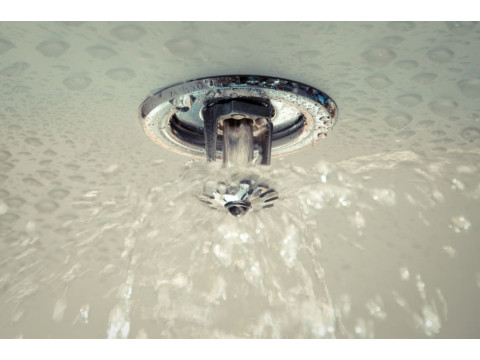What Are Water Fire Suppression Systems?
Water fire suppression is one of the oldest and most effective methods for extinguishing fires. By spraying water to cool the flames and reduce oxygen supply, these systems efficiently stop the combustion process. Water's high heat capacity and ability to transform into steam make it an ideal extinguishing agent.
Key Advantages
- Cost-Effectiveness: Installation and maintenance are more affordable compared to gas or powder-based systems.
- Non-Toxicity: Safe for humans and the environment.
- Rapid Cooling: Water absorbs heat and quickly reduces temperatures below ignition levels.
However, water systems have limitations:
- Electrical Hazards: Water conducts electricity, making it unsuitable for live electrical environments.
- Material Compatibility: Some substances (e.g., carbides) react with water, worsening fires.
- Potential Damage: Water can harm sensitive equipment or valuables.
Types of Water Fire Suppression Systems
Sprinkler Systems
- Feature sealed sprinklers activated individually by heat.
- Ideal for localized fire control, minimizing water usage.
- Common configurations: water-filled, air-filled, or combined systems depending on ambient temperature conditions.
Deluge Systems
- Open nozzles spray water across the entire area.
- Triggered by fire alarms, making them suitable for large-scale coverage and creating protective water curtains.
- Operates effectively in low-temperature environments due to dry pipes.
Sprinkler Systems: How They Work
Sprinkler systems consist of sealed nozzles connected to pressurized pipes. When a fire raises the temperature to a critical level, the sprinkler's heat-sensitive glass bulb bursts, releasing water over the fire.
Advantages:
- Localized Activation: Only sprinklers near the fire activate, limiting water damage.
- Dual Functionality: Acts as both a fire detection and suppression system, often eliminating the need for separate fire alarms.
Deluge Systems: Comprehensive Coverage
Deluge systems are designed for rapid water discharge over large areas. They require fire alarms for activation, enabling precise and programmable responses. These systems are particularly useful for:
- Protecting expansive areas like industrial plants.
- Creating barriers to prevent fire spread.
Advantages:
- Compatibility with Cold Environments: Dry pipes prevent freezing.
- Advanced Automation: Programmable settings enhance system control and reliability.
Key Components of Water Suppression Systems
- Sprinklers and Deluge Nozzles: Deliver water or fire retardant solutions.
- Control Panels (CPUs): Manage activation, monitoring, and integration with other systems like smoke ventilation and elevators.
- Pump Systems: Ensure consistent water pressure, including backup pumps for redundancy.
Choosing the Right System
Selecting the appropriate water suppression system depends on:
- Facility Requirements: Room size, materials stored, and fire risk classification.
- Environmental Conditions: Temperature and potential water damage.
- Professional Expertise: Proper design and installation are critical to ensure functionality during emergencies.
Conclusion
Water fire suppression systems, whether sprinkler or deluge, remain reliable and cost-effective fire safety solutions. With professional planning and installation, they provide unmatched protection while minimizing risks to personnel, equipment, and property. Always prioritize safety and consult experts to ensure optimal system performance.

